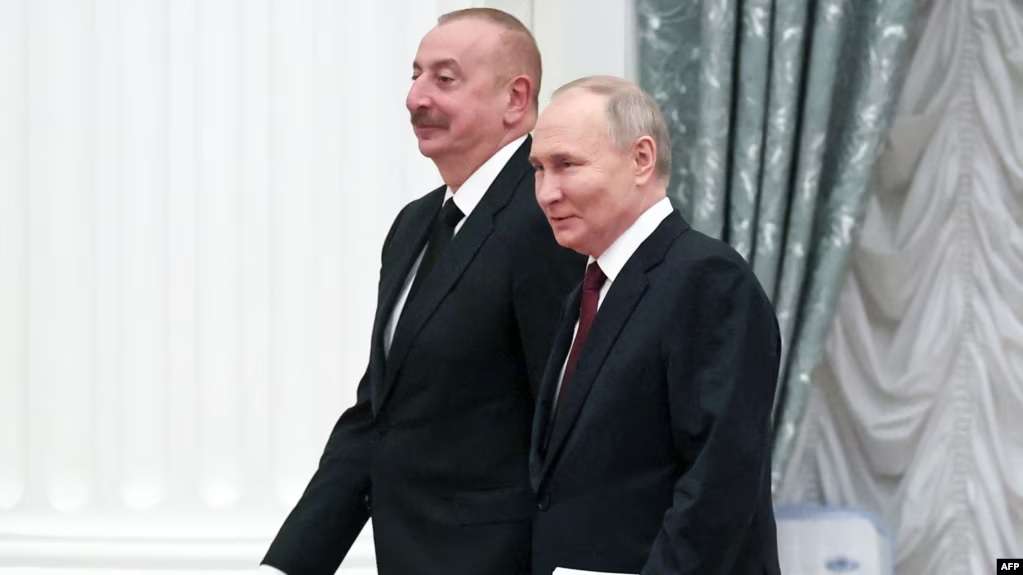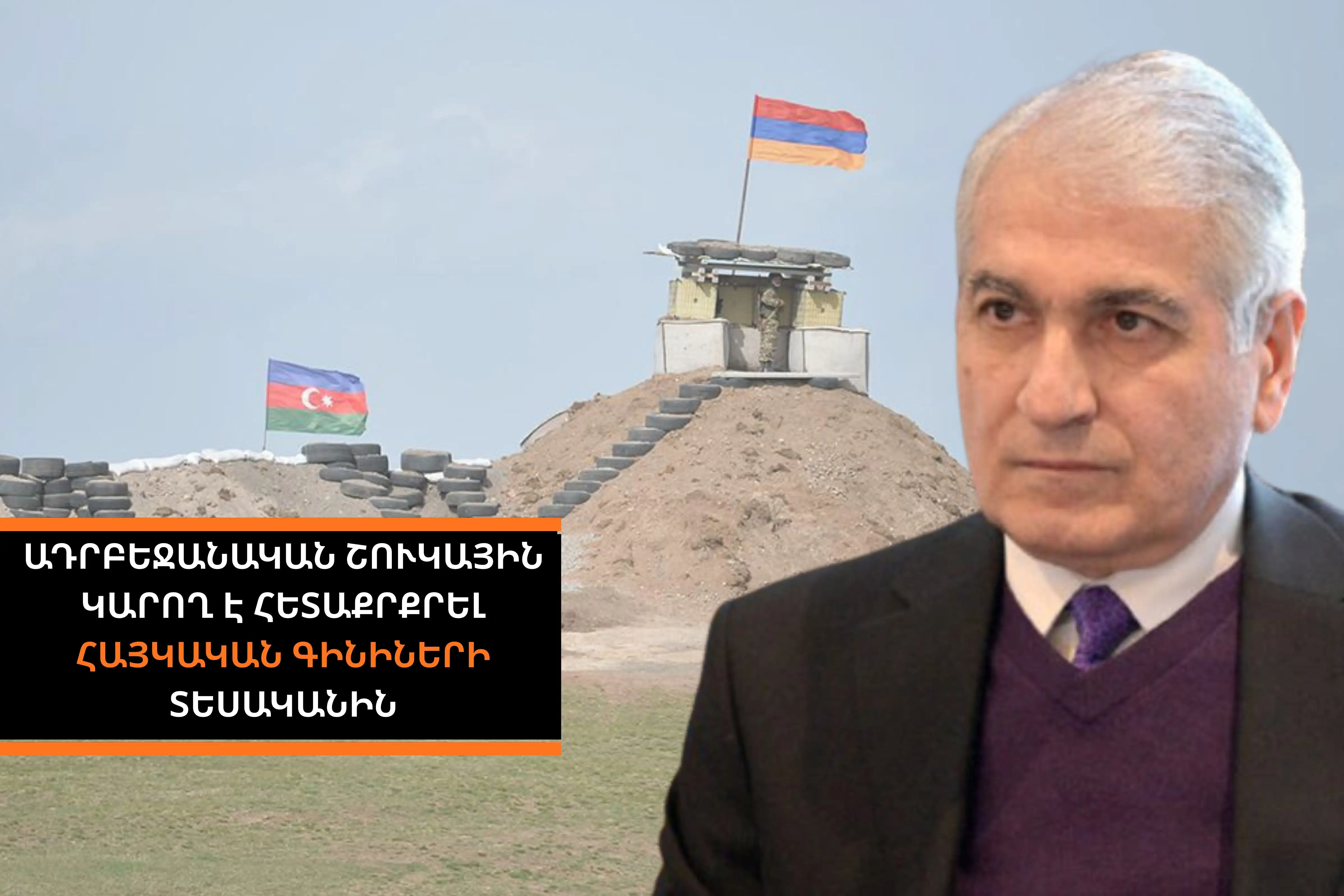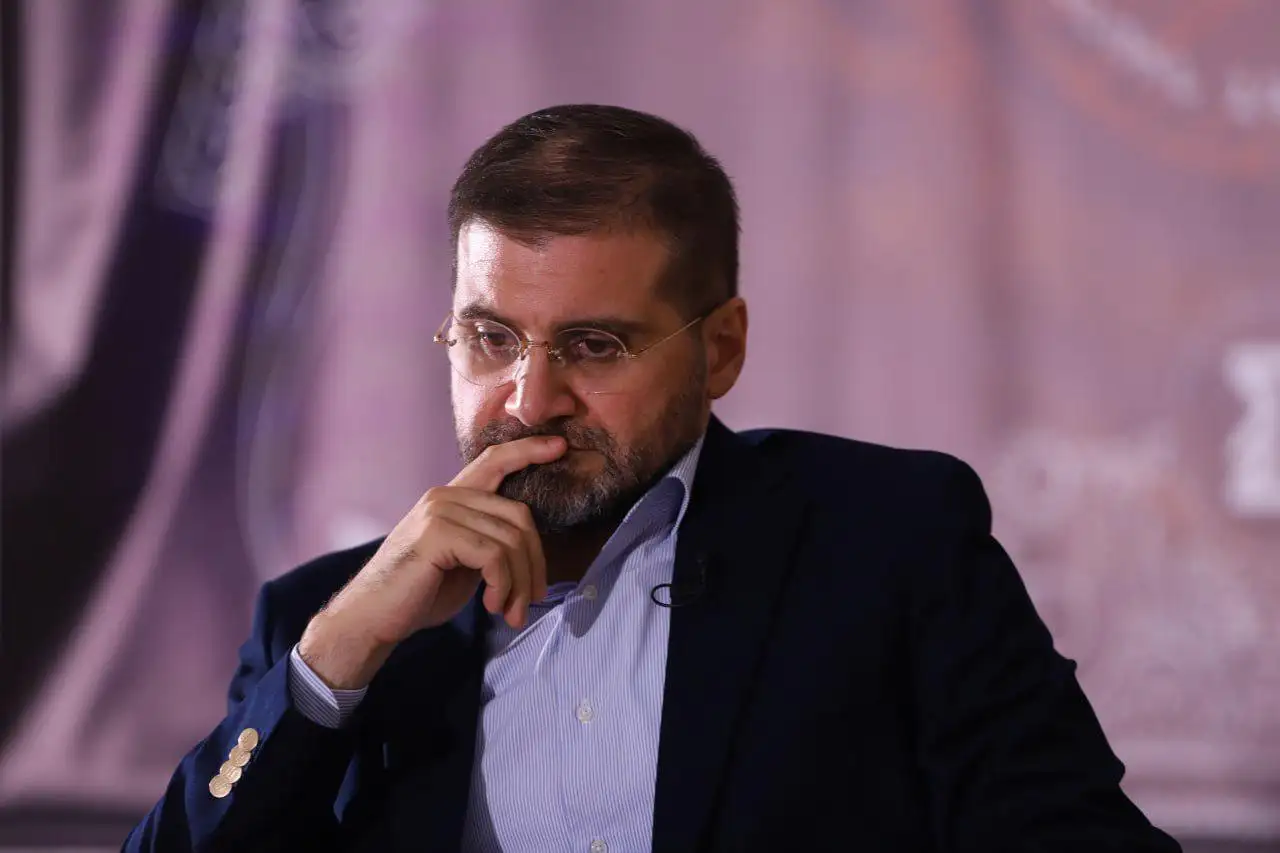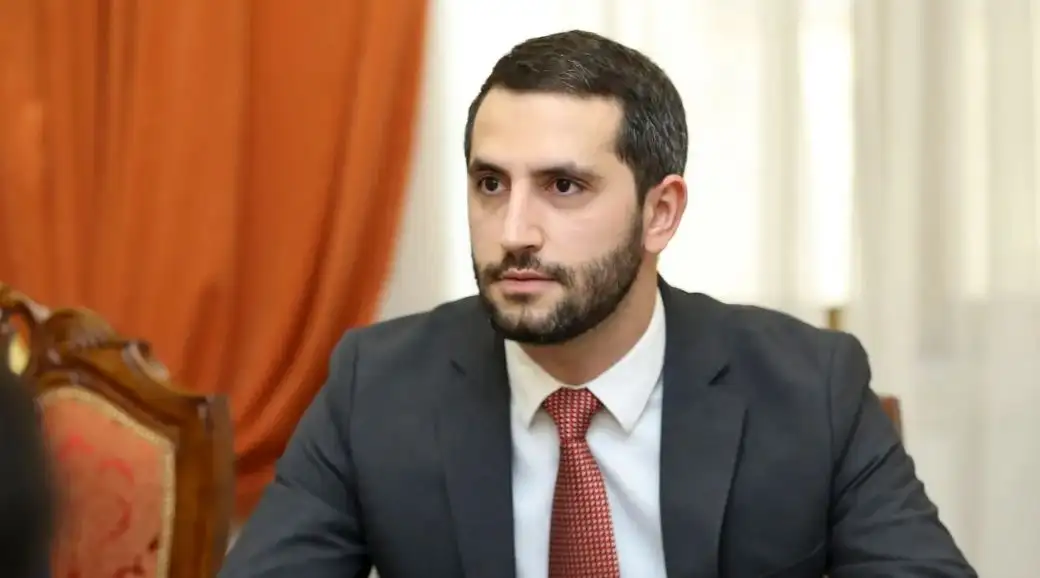The American website Responsible Statecraft published an article by Brussels-based foreign policy expert Eldar Mammadov titled “Western Countries Are Recklessly Rushing to Protect Azerbaijan from Russia,” in which the author analyzes recent Russian-Azerbaijani relations. According to him, the West’s unconditional support for Azerbaijan as a counterweight to Russian influence in the South Caucasus is a strategic mistake that could undermine more important geopolitical goals, including ending the war in Ukraine and the prospect of US-Russian arms control talks.
Radar Armenia presents the article.
The escalation of tensions between Russia and Azerbaijan, expressed in mutual arrests, accusations of ethnic violence, and economic tensions, is prompting some Western analysts to view these conflicts as an opportunity to isolate Moscow.
However, this is not just a story about how Azerbaijan resists Russian dominance. It is a deeper conflict over energy corridors, regional influence, and the future of the South Caucasus. Western orientation toward Baku could undermine key priorities, including the possibility of a U.S.-Russia dialogue on Ukraine and arms control.
Tensions escalated in June 2025, when Russian security services uncovered alleged Azerbaijani-linked criminal networks in Yekaterinburg, resulting in the deaths of two Russians of Azerbaijani origin and the arrest of several alleged mafiosi. Baku described the actions as ethnically motivated, while Moscow insisted that the deaths were of natural causes.
Soon after, Azerbaijan began arresting Russian citizens, including media representatives, as well as seemingly random emigrants. At the same time, pro-state Azerbaijani media outlets have been waging anti-Russian propaganda.
This conflict has deep roots. After regaining control of Nagorno-Karabakh in 2023, bypassing Russian peacekeepers and demonstrating Russia’s weakening influence, President Ilham Aliyev adopted a tougher foreign policy. Aliyev’s sharp criticisms, demands, and calls for justice over the downing of an Azerbaijani plane in Russian airspace in December 2024 signaled a new, tougher stance toward Moscow.
With Turkey’s support and the involvement of Western energy interests, Azerbaijan aims to become the dominant power in the region and establish a key transit hub for oil products from Central Asia to Europe, thereby bypassing Russia.
At the heart of these plans is the creation of the Zangezur corridor, which will provide a link through Armenian territory between Azerbaijan and Nakhchivan, controlled by Baku and Ankara. This project aligns with the West’s goals of reducing energy dependence on Russia. Still, it is opposed by both Russia and Iran, who fear the growing Turkish influence at their expense.
Armenia has found itself at the center of this struggle, under intense pressure. Aliyev has threatened military action if Yerevan resists. At the same time, Armenia’s pro-Western foreign policy is complicating its position. Prime Minister Nikol Pashinyan’s government has frozen its membership in the Collective Security Treaty Organization and has expressed a willingness to join NATO. However, Western support has been primarily limited to rhetoric, while Azerbaijan’s threats are real. In the domestic political situation, Pashinyan’s crackdown on pro-Russian forces is creating additional instability.
Some Western diplomats, encouraged by the emerging geopolitical dynamic between Armenia and Azerbaijan, have rushed to support Baku in an attempt to dislodge Moscow. The EU ambassador to Azerbaijan condemned the alleged “violence, torture and inhumane treatment” of Azerbaijanis in Russia, while the UK ambassador expressed solidarity with the “Azerbaijani people.”
These statements portray the Yekaterinburg incident as an unjustified ethnic attack, not a law enforcement operation. While mistrust of Russian law enforcement is justified, unquestioning acceptance of Baku’s rhetoric when Azerbaijan is also an authoritarian regime is politically one-sided.
While senior EU officials Ursula von der Leyen and Kadri Simson, not Kaia Kallas, have not commented on the clash, both have described Azerbaijan as a “reliable partner” on energy security issues. NATO has also strengthened ties with Baku through education programs.
This support reflects Azerbaijan’s long-standing lobbying efforts. Washington-based think tanks, including The Atlantic Council, the Hudson Institute, the Foundation for Defense of Democracies, and the Caspian Policy Center, to name a few, which receive funding from the Azerbaijani state, portray Baku as a Western ally against Russia and Iran.
Lobbying firms, sometimes bypassing transparency requirements, have secured the support of US members of Congress. Now, with Russian-Azerbaijani tensions escalating, these ties are taking on even greater importance.
However, unconditional support for Baku would be a strategic mistake for four main reasons.
First, Russia retains a decisive military advantage, including nuclear weapons and the ability to cripple Baku’s energy infrastructure. Turkey, as a potential backer of Azerbaijan, is unlikely to engage fully, given its complex relations with Russia.
Despite the focus on the war in Ukraine, Russia may in the future turn its attention to the Caucasus. Western support for Baku could provoke a disproportionate backlash and further destabilize the region.
Second, an open defense of Azerbaijan would confirm the Kremlin’s claim that the West seeks to encircle Russia. This could undermine the prospects for future dialogue, both on ending the war in Ukraine and on arms control. In the face of an existential power struggle, this would be shortsighted.
Third, the Aliyev regime is not a democratic partner. It imprisons opponents, suppresses free speech, and uses nationalist rhetoric. In 2025, a researcher named Bahruz Samadov was sentenced to 15 years in prison for calling for peace on unfounded charges of treason. Supporting Baku would run counter to Western values of human rights and a rules-based world order.
Fourth, encouraging potential Azerbaijani aggression against Armenia or Russia could lead to a full-scale war. The United States has no interest in the Zangezur corridor, but it has an interest in avoiding a new conflict that could involve Turkey, Iran, Israel, and Russia. Such a scenario would increase pressure from advocates of US intervention to drag the country into the war.
The United States should not take sides in this matter. It should use its recent Russian engagement to send signals of de-escalation, making it clear that it has no intention of exploiting this conflict to isolate Moscow. At the same time, the United States should use its influence over Baku to deter it from provocative actions, including threats against Armenians and Russian citizens.
The United States does not need another conflict with Russia. Washington should resist the temptation to view Azerbaijan’s challenge as an opportunity for victory in the South Caucasus. Instead, the primary concern is to prevent an escalation of tensions, both to prevent a humanitarian catastrophe and to preserve the possibility of U.S.-Russian dialogue on Ukraine and strategic arms control.


















